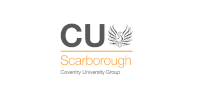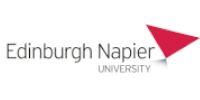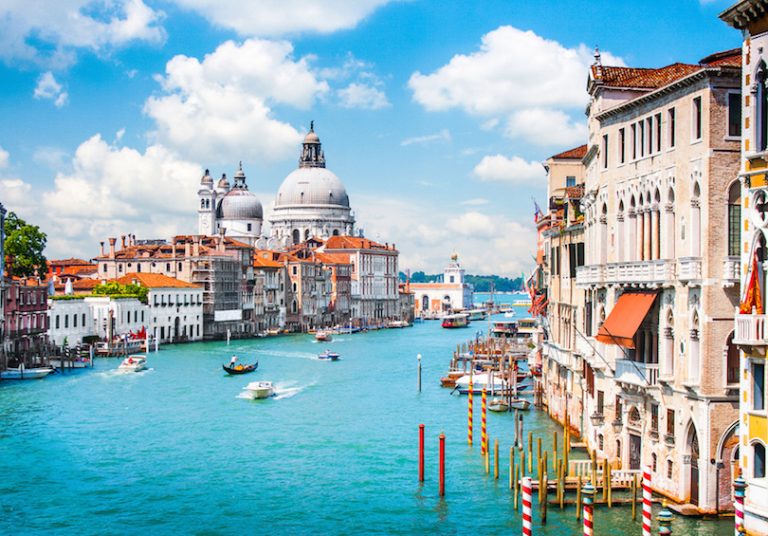Study in Italy
Let’s explore Italy as your next study destination. For students who are planning to continue their higher education in Italy, Student WAYS bring you the best tailored experience and International study options. Our team will be on top of everything, from locating the best University to the best suitable program and scholarships.
- Facts About Italy
- Italy in-Demand Courses
- World’s Oldest and Best Institutions
- 100 % Scholarship
- Free Accomodation
- Work while you study
- Vibrant Student Life
- Study in English Taught Programs
- Paid Internships Opportunities
- Home to the most beautiful cities in the world, Venice and Rome
- Automobile Engineering
- Aerospace Engineering
- Medicine
- Computer Science and Information Technology
- Fashion and Design
- Architecture
- Arts and Humanities
- Tourism and Hospitality Management
- Duration and levels of study
- Academic requirements
- Offered Intakes
- English Language Requirements
- Basic Document Checklist
The duration and level of studies in Italy are as follows:
- Undergraduate studies (Laurea Triennale): These programs typically last three years and are equivalent to a bachelor’s degree in other countries. Students earn 180-200 credits and are required to complete a thesis to graduate.
- Graduate studies (Laurea Magistrale): These programs usually last two years and are equivalent to a master’s degree in other countries. Students earn 120 credits and are required to complete a thesis or a final project to graduate.
- Doctoral studies (Dottorato di Ricerca): These programs usually last three to four years and are equivalent to a PhD in other countries. Students are required to complete original research and write a thesis to earn their degree.
Undergraduate: To apply for an undergraduate degree program in Italy, you need to have completed 12 years of education or hold a high school diploma equivalent to the Italian secondary school diploma.
A-Levels: D,D,C or Intermediate: 60%
Graduate: For a graduate degree program, you generally need to have completed a bachelor’s degree or equivalent from an accredited institution.
GPA: 2.4 / 70%
It’s important to note that admission requirements can vary between universities and degree programs in Italy, so it’s recommended that you check the specific requirements for the program you are interested in before applying.
In Italy, the academic year typically starts in September/October and ends in July. The admission process and intake periods vary depending on the level of study, the program, and the university.
For undergraduate studies (Laurea Triennale), the admission process usually starts in March or April and ends in August. The exact dates may vary depending on the university and the program.
For graduate studies (Laurea Magistrale), the admission process generally begins in February or March and ends in July or September. Some universities also have a second round of admissions in September or October.
It’s important to note that admission to Italian universities is highly competitive, and the requirements and application procedures may vary depending on the university and the program.
The English language requirements for studies in Italy vary depending on the university and the program. While some programs are taught in Italian, many universities offer courses taught in English to attract international students.
For undergraduate studies, most universities require a B1/B2 level of Italian proficiency, as most courses are taught in Italian. However, some universities may require a minimum level of English proficiency (e.g., TOEFL, IELTS) for admission to programs taught in English.
For graduate studies, most universities require a minimum level of English proficiency (e.g., TOEFL, IELTS) for admission to programs taught in English. The required scores may vary depending on the university and the program, but a minimum score of 6.0 on the IELTS or 79 on the TOEFL iBT is usually required.
- High school diploma or equivalent (for undergraduate programs)
- Bachelor’s degree or equivalent (for graduate programs)
- Official transcripts
- Language proficiency test scores (such as TOEFL, IELTS, or the Italian language test if applicable)
- Passport
- Curriculum vitae (CV) or resume
- Statement of purpose or personal statement
- Letters of recommendation
- Any additional documents required by the specific program or university, such as entrance exam scores or a portfolio for art and design programs.
The duration and level of studies in Italy are as follows:
- Undergraduate studies (Laurea Triennale): These programs typically last three years and are equivalent to a bachelor's degree in other countries. Students earn 180-200 credits and are required to complete a thesis to graduate.
- Graduate studies (Laurea Magistrale): These programs usually last two years and are equivalent to a master's degree in other countries. Students earn 120 credits and are required to complete a thesis or a final project to graduate.
- Doctoral studies (Dottorato di Ricerca): These programs usually last three to four years and are equivalent to a PhD in other countries. Students are required to complete original research and write a thesis to earn their degree.
Undergraduate: To apply for an undergraduate degree program in Italy, you need to have completed 12 years of education or hold a high school diploma equivalent to the Italian secondary school diploma.
A-Levels: D,D,C or Intermediate: 60%
Graduate: For a graduate degree program, you generally need to have completed a bachelor's degree or equivalent from an accredited institution.
GPA: 2.4 / 70%
It's important to note that admission requirements can vary between universities and degree programs in Italy, so it's recommended that you check the specific requirements for the program you are interested in before applying.
In Italy, the academic year typically starts in September/October and ends in July. The admission process and intake periods vary depending on the level of study, the program, and the university.
For undergraduate studies (Laurea Triennale), the admission process usually starts in March or April and ends in August. The exact dates may vary depending on the university and the program.
For graduate studies (Laurea Magistrale), the admission process generally begins in February or March and ends in July or September. Some universities also have a second round of admissions in September or October.
It's important to note that admission to Italian universities is highly competitive, and the requirements and application procedures may vary depending on the university and the program.
The English language requirements for studies in Italy vary depending on the university and the program. While some programs are taught in Italian, many universities offer courses taught in English to attract international students.
For undergraduate studies, most universities require a B1/B2 level of Italian proficiency, as most courses are taught in Italian. However, some universities may require a minimum level of English proficiency (e.g., TOEFL, IELTS) for admission to programs taught in English.
For graduate studies, most universities require a minimum level of English proficiency (e.g., TOEFL, IELTS) for admission to programs taught in English. The required scores may vary depending on the university and the program, but a minimum score of 6.0 on the IELTS or 79 on the TOEFL iBT is usually required.
- High school diploma or equivalent (for undergraduate programs)
- Bachelor's degree or equivalent (for graduate programs)
- Official transcripts
- Language proficiency test scores (such as TOEFL, IELTS, or the Italian language test if applicable)
- Passport
- Curriculum vitae (CV) or resume
- Statement of purpose or personal statement
- Letters of recommendation
- Any additional documents required by the specific program or university, such as entrance exam scores or a portfolio for art and design programs.
The Process in a Nutshell

Get Free Consultation
Choose Your Dream University







Real People Real Stories

I feel privileged to convey my gratitude to STUDENT WAYS for assisting me with all the documentation, admission application and visa process for Canada. The supporting team had played an efficient role for my success. For sure, I would like to refer STUDENT WAYS to prospective students. Thank you Vinod Sir & team.
Thanks to Faryal Sheikh, She is a amazing and helpful counselor and always there for a help and guidance whenever I am in need. She truly loves her job and try to guide her students at every moment. She possess a vast knowledge of Canada, US & Canada (I asked her about these only) and can give you options based on your eligibility not the institutions on their panel. In short, she is very transparent in dealing with students.
Request a Call Back
Book your Free Counseling Session with our Experts









